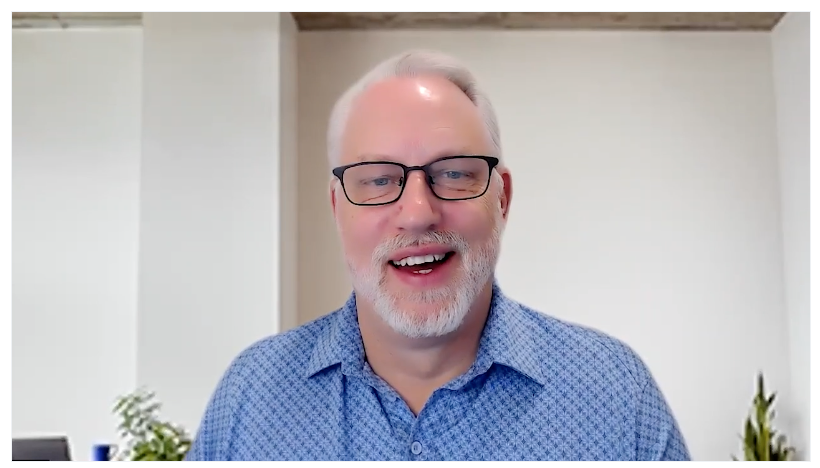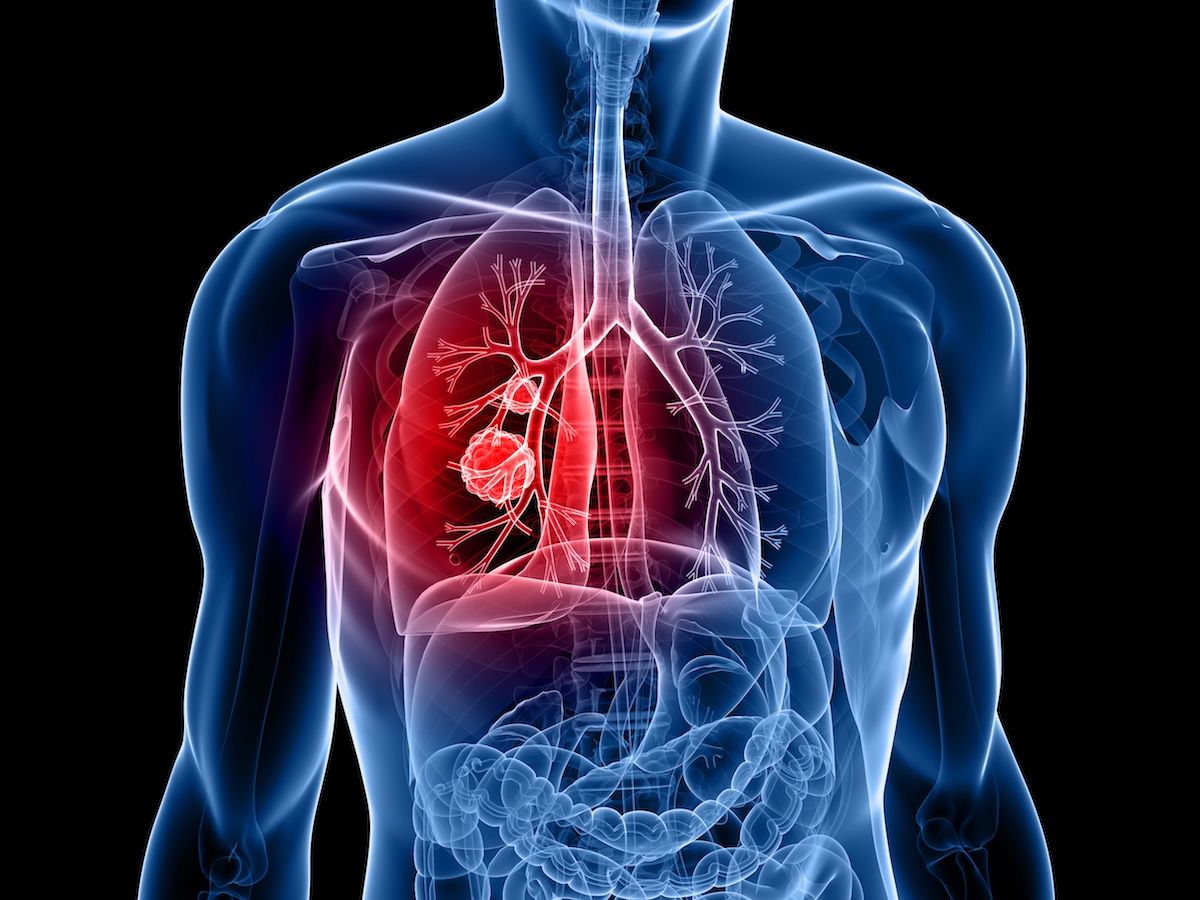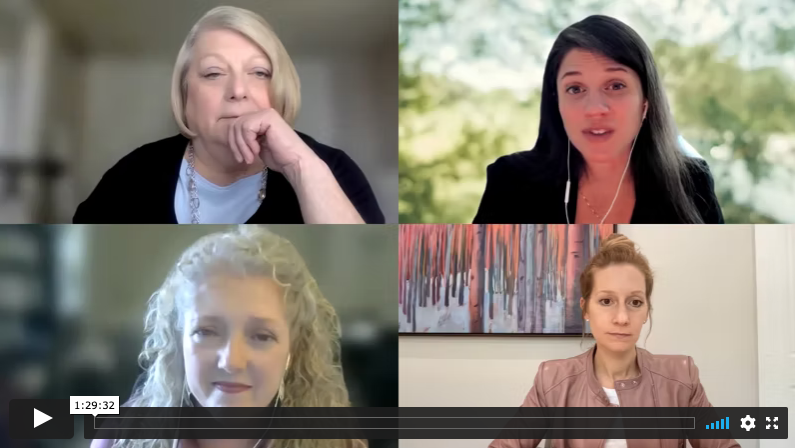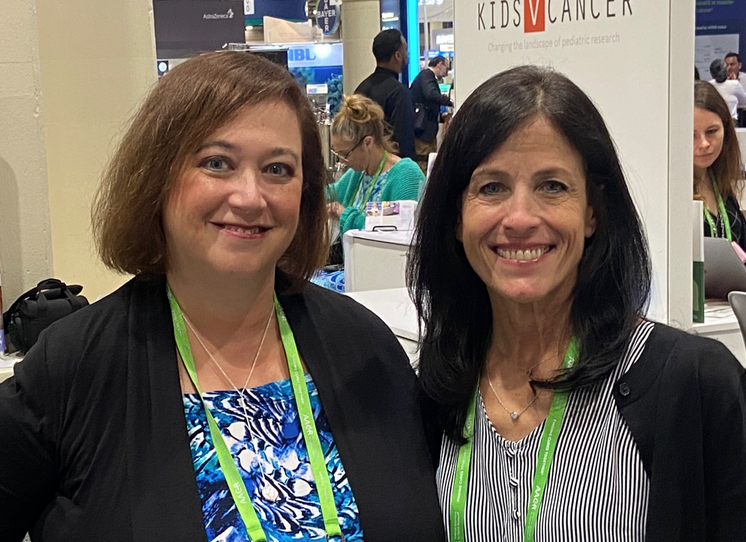- Urge your Senators to increase funding for the Lung Cancer Research Program.
- Read about recently published research by Dr. Kwon-Sik Park, Dr. Manali Patel, and Drs. Satoshi Yoda, Ibiayi Dagogo-Jack and Aaron Hata.
- Watch the ASCO Update recording and catch up on past #TogetherSeparately topics.
- Learn about the 12 new members we recently welcomed to LCRF’s Scientific Advisory Board.
- Get your friends together and join a Free to Breathe Walk!
- If you’re near Deal, NJ on Sunday, July 10, fly a kite for research at Elliot’s Legacy Kites for a Cure.
News

Dr. Manali Patel, who received a 2019 LCRF Grant on Disparities in Lung Cancer, published a manuscript recently in JCO Oncology Practice.
The findings from this LCRF-funded study identify significant unmet needs for low-income and minority populations with lung cancer. Participants showed extreme need psychologically, not just for themselves but for their families. Many assumed that symptoms associated with the disease are just part of having cancer and don’t discuss them with their medical team. Precision medicine and its associated costs are not well understood; for example, genetic testing is related to identifying treatment targets for the tumor, not the patient’s general genetic makeup.
Financial concerns are severe and have extreme impact on the patient, the patient’s family and their overall well being. Trusting relationships between patients and their cancer care team, along with sufficient community support, are critical to overcoming barriers to care.
“In conclusion, modifiable barriers persist in the delivery of equitable lung cancer care among low-income and minority populations,” according to the report. “The rich data from patient perspectives deepen our understanding of barriers and potential solutions to promote equity in lung cancer care in a community setting.”
Ibiayi Dagogo-Jack, MD, and Isabel Preeshagul, DO, MBS, joined us for LCRF’s June 2022 #TogetherSeparately livestream to give an overview of new developments in research from the recent ASCO annual meeting.
Watch the recording below.
Foundation expands its research reviewing body to meet strategic research investment objective
NEW YORK, NY (June 27, 2022) – The Lung Cancer Research Foundation (LCRF) is pleased to expand its Scientific Advisory Board (SAB) by 12 new members. Led by Katerina Politi, PhD, Associate Professor of Pathology and Internal Medicine, Yale School of Medicine, the Scientific Advisory Board’s primary purpose is to review, evaluate and select lung cancer research proposals worthy of financial investment. In addition, members of the SAB provide opinion and guidance on relevant lung cancer data.
“We are honored and delighted to have these exceptional lung cancer experts join our SAB,” commented Dr. Politi. “Advancing the most promising science in lung cancer is of utmost importance to the SAB and we are thrilled to have these leaders committed to fostering lung cancer research join the board. This expansion is an important step as we work towards meeting our strategic objective of tripling LCRF’s research investment by the end of 2024.”
LCRF’s new members of its Scientific Advisory Board:
Chiara Ambrogio, PhD
Associate Professor, University of Torino

Dr. Chiara Ambrogio received her BS/MS in Medical Biotechnology (2004) and her PhD (2008) in Immunology and Cellular Biology from the University of Torino, Italy, focused on the ALK oncogene. For her postdoc training in 2009, she joined the lab of Mariano Barbacid in the Molecular Oncology Program at the CNIO, Madrid, Spain. She later moved to the Medical Oncology Department at the Dana-Farber Cancer Institute (DFCI) in Boston to complete her translational training in Pasi Janne’s lab as a Senior Scientist (2016-2019). At the end of 2018, she received the Armenise-Harvard Career Development Award (CDA) that allowed her to establish her independent lab at the Molecular Biotechnology Center (MBC), University of Torino, where she is also affiliated as an Associate Professor of Molecular Biology. The research focus of Dr. Ambrogio’s lab is to characterize the KRAS signalosome, defined as the functional protein complex engaging KRAS and related effectors, modulators, and adaptors at the cell membrane.
Colleen Conner Ziegler
LCRF Board of Directors and lung cancer patient advocate
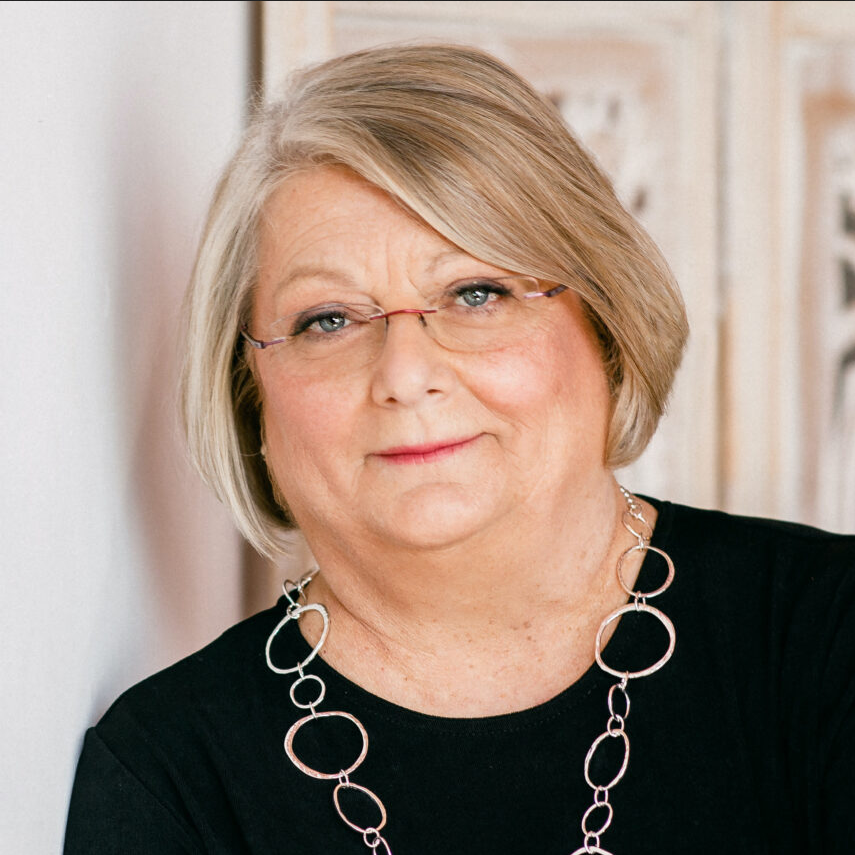
Colleen Conner Ziegler, a lung cancer survivor and active patient advocate, was diagnosed in May 2015 at the age of 58 with Stage IV ALK positive non-small cell lung cancer (NSCLC). She began, and is currently receiving, alectinib as her first line of treatment and recognizes that research has made her treatment possible. After a 22-year career in the pharmaceutical industry, Ms. Conner Ziegler served in a variety of community-focused endeavors, including service on several boards of directors and advisory boards. Her primary focus prior to her diagnosis was on children’s education as well as women’s health issues. Following her lung cancer diagnosis, she turned her focus to lung cancer advocacy. She is a current member of LCRF’s Board of Directors, serves on the Department of Defense Lung Cancer Research Program advisory committee, and has co-founded, and remains active with, several patient-focused lung cancer advocacy organizations focused on ALK-positive lung cancer research.
Ibaiyi Dagogo-Jack, MD
Assistant Professor of Medicine, Harvard Medical School
Thoracic Oncologist, Massachusetts General Hospital
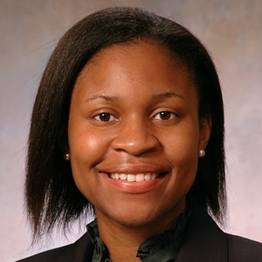
Dr. Ibiayi Dagogo-Jack received her bachelor’s degree in Biological Sciences from Vanderbilt University (2007). She then received her medical degree from the University of Chicago Pritzker School of Medicine (2011). She trained in internal medicine at Brigham and Women’s Hospital through 2014. Following residency, she completed a hematology/oncology fellowship in the combined Massachusetts General Hospital/Dana-Farber Cancer Institute program in 2017, after which she joined the faculty as a medical oncologist focused on thoracic cancers. Her research is focused on understanding mechanisms underlying resistance to lung cancer targeted therapies and developing clinical trials to evaluate novel combinations in lung cancer and mesothelioma. Notably, Dr. Dagogo-Jack’s research team has led studies characterizing resistance to treatments for fusion-driven lung cancer, including strategies to overcome resistance to next-generation ALK inhibitors.
Alexander Drilon, MD
Chief, Early Drug Development Service, Memorial Sloan Kettering Cancer Center

Dr. Alexander Drilon received both his BS (1999) in biology and MD (2004) from the University of the Philippines. In 2018, he became an Associate Attending of Medical Oncology and Associate Professor of Medicine at Weill Cornell Medical College. Most recently, in 2020, Dr. Drilon also took on the role of Chief of the Early Drug Development Service at Memorial Sloan Kettering Cancer Center. As a medical oncologist who specializes in the treatment of lung cancer, working with a team of experts including surgeons, radiation oncologists, pathologists, and nurses, his goal is to provide the best possible care and support for patients and their families. As a member of the Thoracic Oncology Service, his research is focused on developing new treatments for lung cancer, with a particular interest in studying ways to target molecular changes in patients’ tumors with new medicines. Dr. Drilon also specializes in early phase clinical trials and is a member of MSKCC’s Developmental Therapeutics group. Its aim is to bring new drugs to patients with all types of cancer, particularly those for whom standard treatments have been exhausted. Dr. Drilon is also a former LCRF grantee.
Loretta Erhunmwunsee, MD
Thoracic Surgeon, Assistant Professor, Division of Thoracic Surgery and Assistant Professor
Division of Health Equities, City of Hope Cancer Center

Dr. Loretta Erhunmwunsee graduated Phi Beta Kappa from Emory University (2000) in Atlanta and received her medical doctorate from Harvard Medical School (2005) in Boston, graduating magna cum laude. Board certified in general and thoracic surgery, Dr. Erhunmwunsee has been the recipient of numerous honors and awards, including the World Congress on Lung Cancer Young Investigator’s Award (2009) and the LCRF William C. Rippe Award for Distinguished Research in Lung Cancer (2021.) She was chosen as an NIH/NMA Academic Career in Medicine Fellow in 2015 and was chosen as a Feagin Leadership Scholar by Duke University in 2014. Dr. Erhunmwunsee is also the recipient of the Peter C. Pairolero Scholarship Award which she received in 2015 from the General Thoracic Surgical Club. Dr. Erhunmwunsee is a health services researcher who deeply desires to lead investigations that benefit the African American community and contribute to health equity. As an African American woman who grew up in the housing projects of Birmingham, Alabama, she has long observed that neighborhoods impact health and quality of life, and possesses a clear, personal understanding that structural racism exists and harms.
Sarah Goldberg, MD, MPH
Associate Professor of Internal Medicine (Medical Oncology)
Associate Director, Hematology/Oncology Fellowship Program
Research Director, Center for Thoracic Cancers, Yale School of Medicine
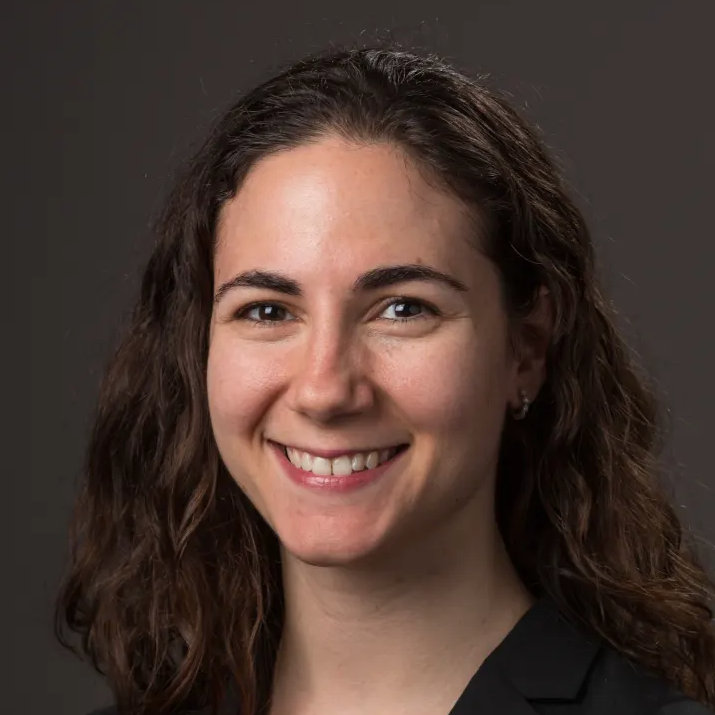
Dr. Sarah Goldberg received her MPH from Harvard School of Public Health and her MD from Mount Sinai School of Medicine (2006) She completed her residency at Massachusetts General Hospital (2009) and was a Fellow at Dana-Farber Cancer Institute (2012). She specializes in the treatment of thoracic malignancies and is the Research Director of the Center for Thoracic Cancers and the Associate Director of the Hematology/Oncology Fellowship Program at Yale. Her research interests include personalized medicine and immunotherapy for non-small cell lung cancer, with a particular focus on EGFR mutation-positive lung cancer and brain metastases.
William Lockwood, PhD
Senior Scientist, BC Cancer Research, Integrative Oncology

Dr. William Lockwood received his BSc. in Microbiology and Immunology from the University of British Columbia (2004) and completed his PhD in Pathology and Laboratory Medicine (2009) at the same university, training with the lung cancer research group at BC Cancer Research Centre where he aimed to characterize the genetic mechanisms underlying development of different lung cancer subtypes. He pursued postdoctoral studies as a CIHR Jean-Francois St. Dennis Fellow in Cancer Research in the laboratory of Nobel laureate Dr. Harold Varmus, first at Memorial Sloan Kettering Cancer Center, New York, and later at the National Human Genome Research Institute in Bethesda, MD. There, he focused on utilizing mouse models of lung cancer to study mechanism of lung cancer initiation, progression and response to therapy and identifying novel therapeutics for lung cancer treatment. Dr. Lockwood returned to the BC Cancer Research Institute to begin his own research group in 2014 with a focus on understanding lung cancer biology using integrative genomics approaches. His lab has specific interest in dissecting genes and signalling pathways that drive lung cancer development and targeted therapy resistance, using both model systems and genomic data from patients for this purpose. He is the recent recipient of the Michael Smith Foundation for Health Research Scholar and the International Association for the Study of Lung Cancer Young Investigator awards. Dr. Lockwood is a 2020 LCRF research grant recipient.
Kathryn O’Donnell, PhD
Associate Professor, Molecular Biology, UT Southwestern
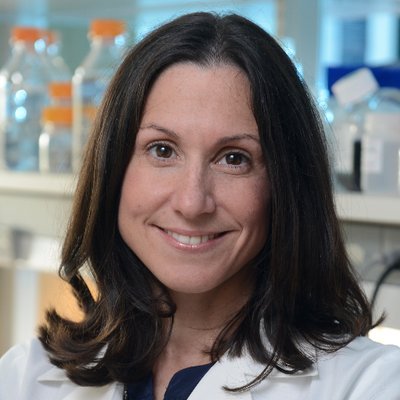
Kathryn O’Donnell received her B.S. in Genetics from Cornell University and her Ph.D. in Human Genetics from Johns Hopkins School of Medicine (2005). In 2011, Dr. O’Donnell was recruited to UT Southwestern Medical Center as an Assistant Professor in the Department of Molecular Biology and received a Cancer Prevention and Research Institute of Texas (CPRIT) Recruitment of First-Time Tenure-Track Faculty Member Award. Her current work is focused on understanding the mechanisms that contribute to lung tumor initiation, progression, and metastasis and applying insights from these studies towards the development of new therapies for lung cancer. Several projects investigate the regulation and function of oncogenic cell surface receptors using molecular and biochemical studies, functional genetics, and mouse models. Her research is supported by awards from the National Cancer Institute (NCI), the Department of Defense (DoD), the V Foundation, the LUNGevity Foundation, the Welch Foundation, and CPRIT.
Hilary Robbins, PhD, MPH
Research Scientist, Epidemiology, International Agency for Research on Cancer
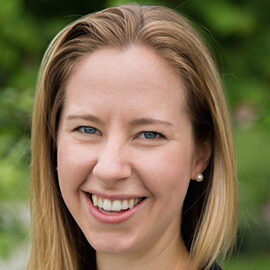
Dr. Hilary Robbins earned masters’ degrees in international health (2012) and biostatistics (2017) and a PhD in epidemiology at Johns Hopkins Bloomberg School of Public Health (2018). She also completed a postbaccalaureate fellowship in the Infections and Immunoepidemiology Branch of DCEG. Her current research is focused on risk-tailored approaches to early cancer detection, using tools such as risk prediction models and biomarkers. At the International Agency for Research on Cancer, Lyon, France, Dr. Robbins co-leads cohort consortia focused on human papillomavirus-related cancers and lung cancer. She is the recipient of LCRF’s 2020 William C. Rippe Award for Distinguished Research in Lung Cancer.
Julien Sage, PhD
Professor of Pediatric Cancer and Genetics, Stanford University

Dr. Julien Sage completed his BSc in Molecular Biology from Ecole Normale Superieure in Paris, France (1992) and completed his PhD in Developmental Biology at the University of Nice, France (1998.) He finished his post-doc at the Massachusetts Institute of Technology (2003) in cancer biology. Currently, he is a professor at Stanford University in the Pediatrics and Genetics departments, where the Sage lab’s research program focuses on the mechanisms that control the proliferation of mammalian cells under normal and pathological conditions (regeneration, cancer), with a particular emphasis on stem cells and gene regulatory networks. His lab uses genome editing strategies to develop and study genetically engineered mouse models for human cancers, including lung cancer, pancreatic cancer, and liver cancer. Dr. Sage’s work spans the investigation of fundamental biological processes to the implementation of clinical trials based on findings in pre-clinical models. Dr. Sage received funding from UALC, one of the legacy organizations that became LCRF.
Diane Tseng, MD, PhD
Assistant Professor, Clinical Research Division, Fred Hutchinson Cancer Center

Dr. Diane Tseng received her MD and PhD from Stanford University School of Medicine (2013), completed her residency in internal medicine at Massachusetts General Hospital (2016) and her Fellowship in Medical Oncology at Stanford University School of Medicine (2020.) Dr. Tseng is a clinical investigator studying the interaction between lung cancer and the immune system with the goal of developing new lung cancer immunotherapy treatments. Her work examines immunotherapy biomarkers in lung cancer to understand mechanisms of response and resistance to treatment. She is a 2018 LCRF research grant recipient.
Robert A. Winn, MD
Director & Lipman Chair in Oncology, VCU Massey Cancer Center
Senior Associate Dean for Cancer Innovation, Professor of Pulmonary Disease and Critical Care Medicine, VCU School Of Medicine

As director of Virginia Commonwealth University Massey Cancer Center, Robert A. Winn, M.D., is leading the nation in establishing a 21st-century model for promoting diversity, equity, and inclusion in the oncology workforce, optimizing cancer health care outcomes for all and spearheading interdisciplinary approaches to cancer disparities research. Just the fourth director of Massey since its 1975 National Cancer Institute designation, Dr. Winn oversees a center comprised of more than 140 scientists and clinical investigators. Leading by example, he is nationally recognized for his community engagement efforts in promoting new approaches to building trust among populations previously disenfranchised from healthcare or excluded or abused in research. Most recently, during the pandemic, Dr. Winn launched a nationally heralded Facts & Faith Fridays conversation series, an initiative that creates a dialogue between science, community, and faith leaders to combat medical mistrust within the African American community. Hosted guests have included Jill Biden, Ed.D., Anthony Fauci, M.D., Ned Sharpless, M.D., and Francis Collins, M.D., Ph.D.
Dr. Winn is committed to both community-engaged research and research focused on eliminating health disparities. He is principal investigator on several large multi-institutional initiatives, including a team science award from Stand Up To Cancer, a National Cancer Institute (NCI)-funded Planning SPORE focused on Lung Cancer Health Equity and an NCI-funded institutional partnership award fostering cancer disparities research and career development collaboration between Massey and Virginia State University, a Historically Black University located in Petersburg, VA – a city that has faced health and education inequities for generations. Dr. Winn also manages his own basic and translational research laboratory which has been supported by multiple NIH and Veterans Affairs Merit awards for nearly two decades. His laboratory focuses on the molecular mechanisms and novel therapeutic approaches for lung cancer and the confluence between societal and biological factors which may lead to disparities.
The recipient of numerous awards and honors, Dr. Winn received the National Cancer Institute Center to Reduce Cancer Health Disparities CURE Program Lifetime Achievement Award. He is a member of the National Cancer Policy Forum of the National Academies of Sciences, Engineering, and Medicine and of several other professional societies. In 2022, the Bristol Myers Squibb Foundation Diversity in Clinical Trials Career Development Program was renamed the Robert A. Winn Diversity in Clinical Trials Award Program (Winn Award).
# # #
About the Lung Cancer Research Foundation (LCRF)
The Lung Cancer Research Foundation® (LCRF) is the leading nonprofit organization focused on funding innovative, high-reward research with the potential to extend survival and improve quality of life for people with lung cancer. LCRF’s mission is to improve lung cancer outcomes by funding research for the prevention, diagnosis, treatment, and cure of lung cancer. To date, LCRF has funded 394 research grants, totaling nearly $39 million, the highest amount provided by a nonprofit organization dedicated to funding lung cancer research. For more information, visit lcrf.org.
Two former LCRF grantees and a Scientific Advisory Board (SAB) member were among the co-authors of a study, “Analysis of lorlatinib analogs reveals a roadmap for targeting diverse compound resistance mutations in ALK-positive lung cancer,” published recently in Nature Cancer.

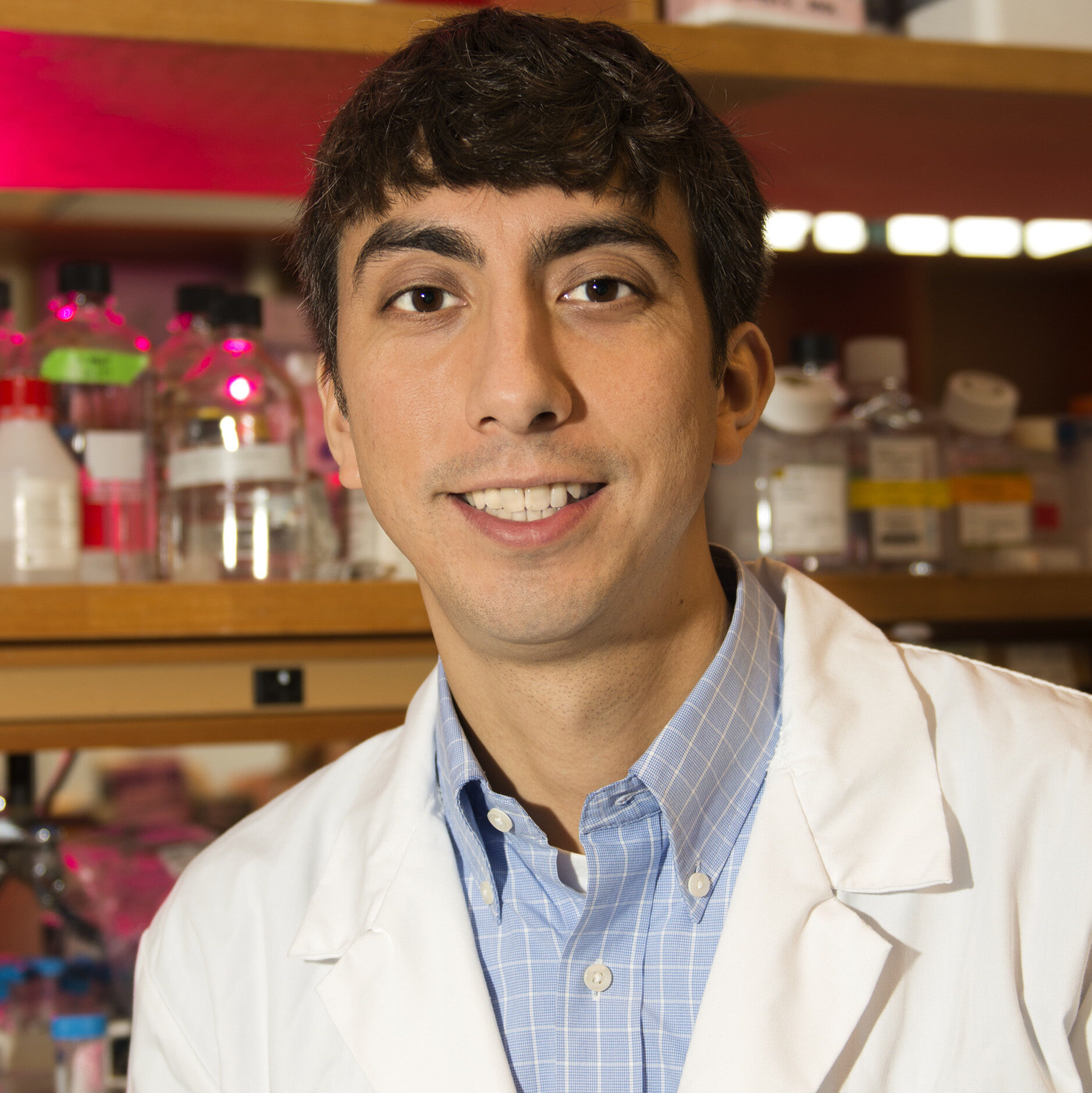

Satoshi Yoda, PhD, and Aaron Hata, MD, PhD both received grants from LCRF, and Ibiayi Dagogo-Jack, MD, was recently named as a member of LCRF’s SAB.
First Sites Initiated for Trial Enrollment to Inform Neoadjuvant Targeted Therapy Options for Patients with Lung Cancer
NEW YORK, NY (June 2, 2022) – The Lung Cancer Mutation Consortium (LCMC), facilitated by the Lung Cancer Research Foundation (LCRF), announces the initiation of trial sites at USC Norris Cancer Center, University of California-Davis, University of Michigan, and University of Washington for its fourth study, LCMC4 Evaluation of Actionable Drivers in EaRly Stage Lung Cancer (LEADER), examining targeted drugs given as single agents and combinations as neoadjuvant therapies matched to specific genetic mutations.
The LEADER trial, together with matched industry-sponsored therapeutic trials, aims to develop data that will support oncologists in their targeted treatment planning for cancer patients prior to surgery by screening for eleven actionable driver mutations in patients. The trial is now open for enrollment and is expected to include more than 20 trial sites, with investigators from across the country.
“This effort is an important next step to expand the benefits of targeted treatment to patients with early-stage lung cancers. Comprehensive genomic profiling offers critical insights that allow oncologists to select the best treatments for each individual person. We are eager to see how the results of this study can impact patient care,” says Mark G. Kris, MD, Attending Physician, Thoracic Oncology Service, Department of Medicine at Memorial Sloan Kettering Cancer Center and one of the investigators of the LEADER trial.
Additionally, a new “Trial in Progress” abstract will be presented at the American Society of Clinical Oncology (ASCO) 2022 Annual Meeting on Monday, June 6 by Dr. Kris and Boris Sepesi, M.D., F.A.C.S., Associate Professor, Department of Thoracic and Cardiovascular Surgery, Division of Surgery, The University of Texas MD Anderson Cancer Center, and Principal Investigator of the LEADER Trial. They will detail LEADER’s primary objective of determining the proportion of resectable NSCLC patients within the trial who possess actionable oncogenic drivers. Results from comprehensive genetic profile testing will inform the LEADER trial sites on their selection of neoadjuvant therapy and enrollment onto independent therapeutic trials with genomically matched neoadjuvant treatment, standard therapies, or other trials if no driver is detected. To access the abstract (Abstract TPS8596), go to meetinglibrary.asco.org.
Patients with early-stage lung cancers who are interested in participating in the LCMC LEADER trial should discuss the study with their oncologist to determine eligibility and the process for enrollment.
To learn more about LCMC and the LEADER trial, visit LCRF.org/LCMC4
###
About the Lung Cancer Research Foundation (LCRF)
The Lung Cancer Research Foundation® (LCRF) is the leading nonprofit organization focused on funding innovative, high-reward research with the potential to extend survival and improve quality of life for people with lung cancer. LCRF’s mission is to improve lung cancer outcomes by funding research for the prevention, diagnosis, treatment, and cure of lung cancer. To date, LCRF has funded 394 research grants, totaling nearly $39 million, the highest amount provided by a nonprofit organization dedicated to funding lung cancer research. For more information, visit LCRF.org.
About the Lung Cancer Mutation Consortium (LCMC)
Focused on deepening our understanding of the genetic changes that underlie lung cancers and on improving outcomes in patients whose tumors harbor these oncogenic drivers, the Lung Cancer Mutation Consortium (LCMC) is an association of more than twenty U.S. cancer centers. Through the testing of tumor tissues to uncover genetic changes, LCMC investigators match patients with targeted drugs and clinical trials designed to change the practice of thoracic oncology. The Lung Cancer Research Foundation coordinates and supports the activities of the LCMC. LCMC is a unique model that brings together advocacy, academic, and industry partners in a collaborative setting. This strategy streamlines research efforts, cuts cost and delays, facilitates connections with the lung cancer and advocacy communities, and brings us closer to the goal of precision medicine where therapies are matched to the specific needs of each person with lung cancer.
Contact:
Sheila Sullivan
Senior Director, Marketing & Communications, LCRF
ssullivan@LCRF.org
LCRF’s May 2022 #TogetherSeparately livestream invited a panel of speakers to discuss many important areas of caring for one’s mental health during a lung cancer diagnosis.
Our guests were:
- Laura Petrillo, MD, Pallative Care Physician, Massachusetts General Hospital
- Jamie Jacobs, PhD, Program Director, Center for Psychiatric Oncology & Behavioral Sciences; Director, Caregiving Research, Cancer Outcomes Research & Education Program, Massachusetts General Hospital Cancer Center; Assistant Professor of Psychology, Harvard Medical School
- Colleen Conner Ziegler, LCRF Board Member Moderator
- Lynne S. Padgett, PhD, Health Science Officer/Scientific Program Manager, U.S. Department of Veterans Affairs
Watch the recording below.
Links referenced during the livestream:
- Palliative care support: getpalliativecare.org/provider-directory
- prepareforyourcare.org
- theconversationproject.org
Any activity or event can be an opportunity to support lung cancer research – and these fundraisers are a great example! Read their stories below, and learn how you can get started on your own event.
11th Annual Frank Ramirez Breathe 2 Believe Fundraiser
PHOENIX, AZ – Vanessa Ramirez and family hosted a brunch event to raise awareness and funds for lung cancer research in memory of her father, Frank. The event was a huge success and they reached their goal of $30,000!
The event included vendors, a raffle, and other fun activities, as well as a chance to hear from cancer survivors. Diamondbacks baseball legend Luis Gonzalez led live auction which brought in over $2,000 of the total raised.
Vanessa and her family generously split the proceeds between LCRF and other local cancer fighting organizations in Phoenix.
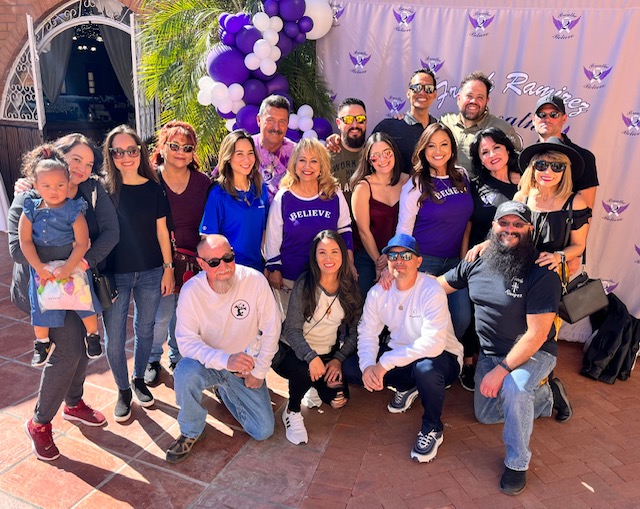

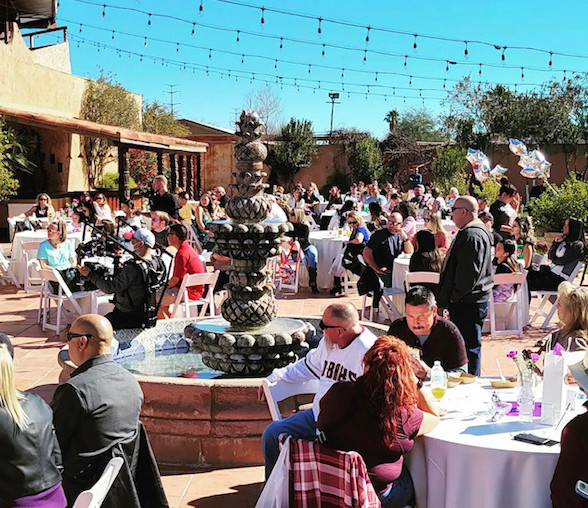
Marilyn A. Holman Memorial Golf Tournament
RICHMOND, VA – Noah Holman, who attends the University of Richmond School of Law, raised $6,000 for lung cancer research by holding a golf tournament with the Richmond Spots & Entertainment Law Society in memory of his mother, Marilyn.
“Since her passing, I always remind myself that her legacy lives on through me and each of my siblings,” Noah said. “My mom lived her life by giving back to others, always putting others’ needs above her own. With that in mind, I couldn’t think of a much better way to honor her legacy than to host this event with the goal of helping other families affected by this devastating disease.”
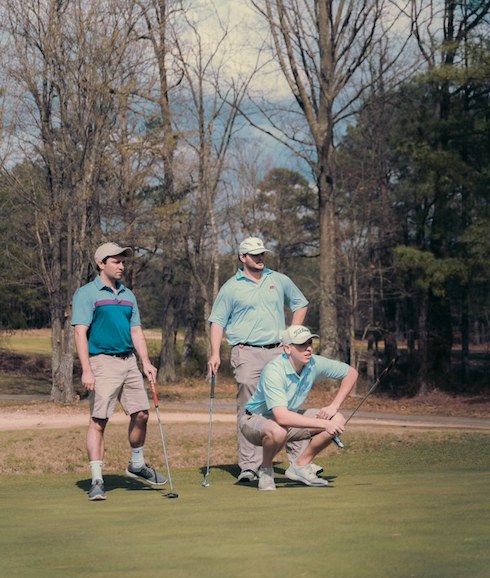
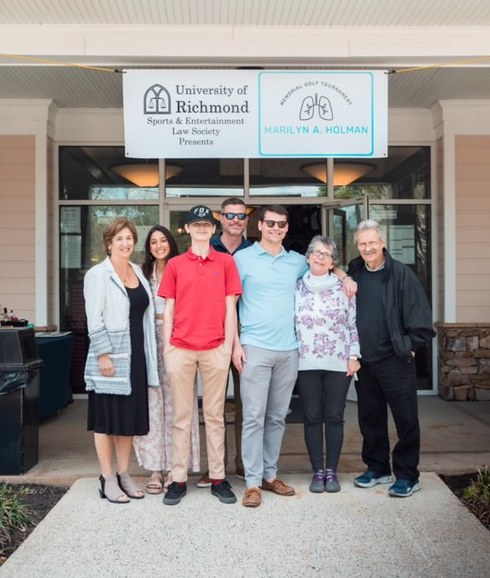

Seneca Valley High School’s Charity Kickball Tournament
HARMONY, PA – High school senior Alyson Rosell hosted a charity kickball tournament in memory of her grandfather, Lawrence Rossell, who died of lung cancer on May 15, 2013. The tournament, which raised $1,500 for research, included raffles and t-shirt sales.
“I was very young when he passed, and I didn’t really understand everything that was going on,” Alyson said. “All I knew was that he was sick, and he left too soon. He was my best friend, and it broke me down emotionally when I lost him. My grandfather influenced me to become a better person and I know he is still protecting me.”
“Families all over the world are going through the same pain I felt as a child,” she added. That’s why she chose to do a senior project “that will help research ways to fight the battle one step at a time.”
The tournament was such a huge hit among Alyson’s classmates that they are eager to do it again!
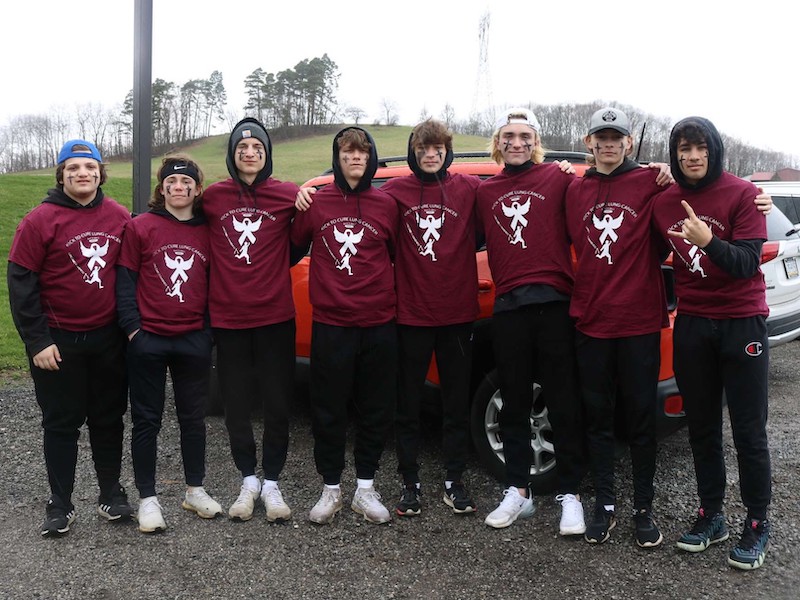
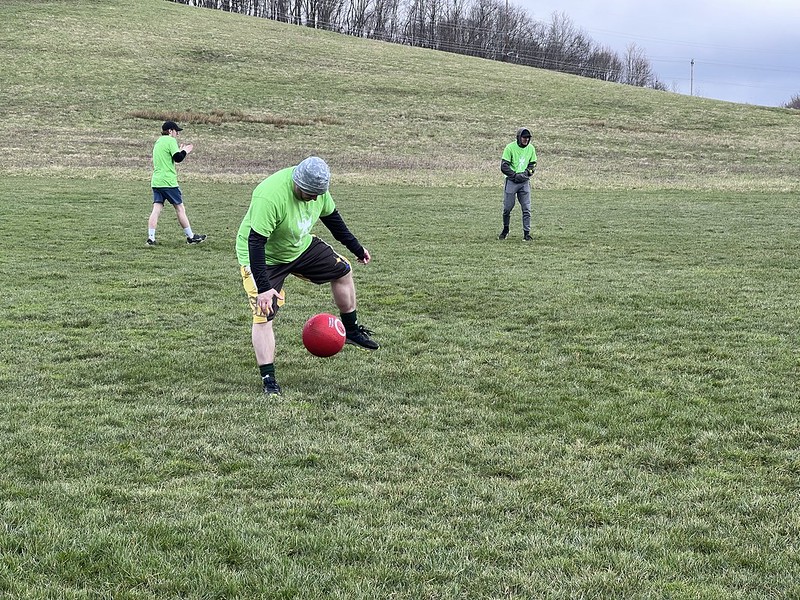
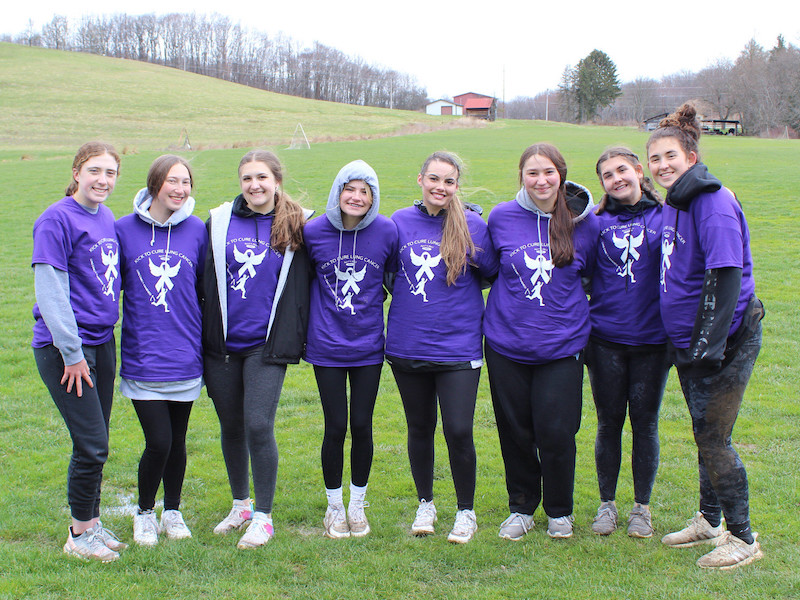
Purple & White Fight Night
NEW YORK, NY – The 6th annual Purple & White Fight Night benefiting benefit LCRF and The Hirshberg Foundation for Pancreatic Cancer Research was held in April – and raised nearly $95,000!
Danyelle Shapiro and Ashley Katzen began the event in 2014, in memory of parents they’d lost to cancer. Danyelle’s father passed away from lung cancer at age 41, and Ashley’s mother died of pancreatic cancer at age 54. .
The collaboration between the two women was sparked by the impact cancer has had on their lives and the grim statistics for each disease. Their personal message: “Awareness is hope, and hope never quits!”

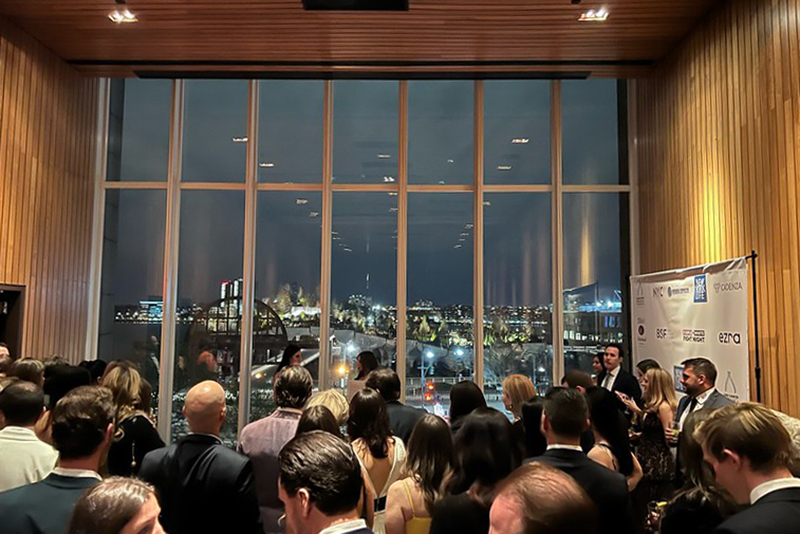

Glochella
IMPERIAL, CA – Jessica Salgado and her family planned a musical festival themed birthday party in memory of her mother, Gloria, whom they lost to lung cancer. “Glochella” was quite the event with live music, dancing, art installations and more. Together, the family raised almost $15,000 for lung cancer research!
This event was simple but special: family and friends coming together over their love of music and their love for Gloria.
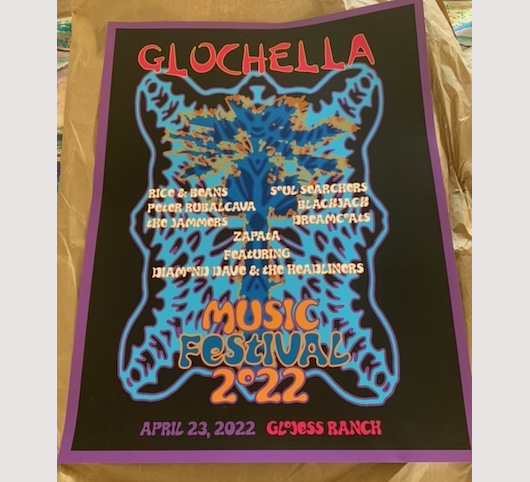

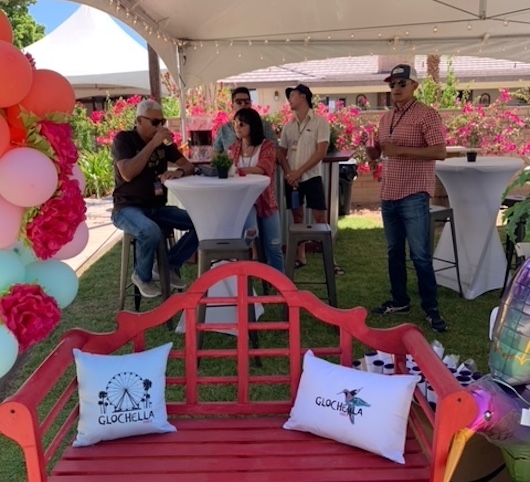
“Joseph and the Amazing Technicolor Dreamcoat” by McMagical Productions
HADDON TOWNSHIP, NJ – McMagical Productions presented the musical “Joseph and the Amazing Technicolor Dreamcoat” at the Ritz Theatre in Haddon Township, with a percentage of proceeds donated to LCRF. McMagical Productions is a non-profit organization created in memory of and with inspiration from Barbara McKinsey, a young dance teacher who passed away from lung cancer in June 2013. The organization serves those suffering from chronic diseases by raising money, raising awareness, and raising their spirits through the performing arts.
Want to make a splash with your own fundraising event? We would love to help support and brainstorm with you – here are some ideas! Reach out for more information and questions to Emma at enestler@LCRF.org.
Upstage Lung Cancer‘s Backstage@Upstage podcast recently featured Jill Feldman and Ivy Elkins as guests for an episode titled Biomarkers Benefit Lung Cancer Resisters.
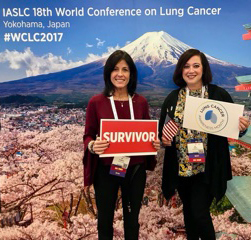
Hosts Hildy Grossman and Jordan Rich spoke with Jill and Ivy about how their lung cancer diagnosis – along with the ability to detect a particular biomarker, EGFR – has affected the course of their lives. Biomarkers indicate alterations in your DNA that may drive a tumor. Using biomarker testing, it’s possible to refine diagnostic information to help select treatments to target directly that alteration.
Jill and Ivy channeled their experience as lung cancer survivors and advocates into creating the patient-centered organization, EGFR Resisters. This organization supports and notifies the EGFR-positive, lung cancer community about the latest information in diagnosis, research and treatment. Their vision is to support continued research to make lung cancer a manageable, chronic disease.
Listen to the episode:
Find out more about the podcast and listen to additional episodes here.
Karen Knetter passed away on September 7, 2024, 4 years after her diagnosis with lung cancer.
By Karen Knetter | April 2022

Two years ago, the oncologist assigned to my case called my room at the hospital during COVID-19 lockdown and told me I had a wolf pack behind me to fight the lung cancer that invaded my body. Dr Narjust Duma’s positivity gave me hope as I digested and grieved the diagnosis of non-small cell adenocarcinoma with EGFR mutation.
This survivor has felt the strength of that wolf pack from not only the excellent medical care I’ve received, but also from the decades of research by scientists that lead to the targeted therapy that’s extending my life. I want to celebrate this 2-year anniversary by advocating for more funding for lung cancer detection and treatment to better the lives of future patients.
Shining a spotlight on the biggest cancer killer will help remove the stigma (get lung cancer from smoking) that’s historically deprioritized its funding. Yes, smoking is the leading cause of lung cancer but 20% of lung cancer diagnoses are non-smokers or never-smokers (2/3 of those are women). Smokers with lung cancer deserve benefits of modern medicine as well; many smokers have fallen prey to the tobacco industry’s advertising campaigns and/or government handouts (veterans receiving free cigarettes). That shouldn’t diminish lung cancer research funding.
No cancer is more important than another, but large discrepancies in funding exist. Lung cancer kills one and a half times as many women as breast cancer, yet it receives less than a fifth of research funding in dollars per death. More women died last year of lung cancer than of breast, ovarian and cervical cancer combined.
We need to elevate funding for lung cancer research to broaden the impact of life-saving technologies. If you can help, please be part of my wolf pack.
